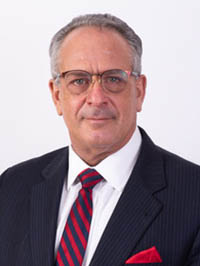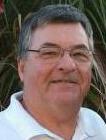Are You Serious or Just Foolin’ Around – Is it a Business or a Hobby?
Tuesday, June 10, 2025 · 2:00 – 3:40 PM ET
You have one year from airing date to use this course as credit.
Continuing Education
CPE Program Knowledge Level: Overview
2 CPE Credit; NO prerequisites or advance preparation
CTEC Course #: 3022-CE-0173
IRS/RPO Approved Program
#7ZBUJ-T-00130-25-O (Online/Group) Live (Group-Internet Based)
#7ZBUJ-T-00130-25-S (QAS Self Study) Archive
Federal Tax Law (2 Hours)

Program Content
This online learning program, presented as a live webcast, will be also archived for QAS Self Study. The program will be available for viewing for 12 months after the live webcast. A panel of IRS and industry experts will present the content during a live, interactive discussion, where participant questions can be submitted. Questions will be answered live on the program or posted on the Resources page.
The program, through a lively round-table discussion and real time interaction with the audience, focuses on what distinguishes a business from more casual activities. The program will explore factors the IRS considers in making the decision on whether an activity is a business or a hobby. Panelists will examine the restrictions on deductions generated by an activity that fails to rise to the level of a business. The discussion will also zero in on the presumption as to whether an activity is a business or not, and the election that allows the taxpayer to extend the time in which that presumption is applied. The panel also will explore some special situations and the tax adjustment and penalties that may apply when a taxpayer incorrectly treats a hobby as a business.
By the end of the program, participants will have a practical understanding, through accurate, current, and effectively designed communications, of the "hobby loss rules" and the distinction between an actual business and an activity that lacks a true profit motive.
Program Learning Objectives
- Identify the requirements for deducting expenditures as business expenses.
- Identify the factors that are considered in determining whether an activity is a business or hobby.
- Identify the presumption that applies to an activity that it is a business.
- Identify the special situations covered by the hobby loss rules and the tax adjustment that occurs when an activity is determined not to be a business.
Program Outline
Requirements for Deducting Business Expenses
- Profit Motive
- Trade or Business
- Ordinary and Necessary
The Nine Factors
- Manner
- Expertise
- Time and Effort
- Expectation of Appreciation
- Success in Other Activities
- History
- Amounts of Occasional Profit
- Financial Stake
- Personal Pleasure or Recreation
Activity Not-for-Profit (Section 183)
- General Rule
- Allowable Deductions
- Presumption
- Election to Postpone
Special Situations
- Multiple Activities
- Farming and Farmland
Tax Adjustment
- Penalties
Panelists
Moderator

Alan Pinck, EA
A. Pinck & Associates
Alan Pinck is an Enrolled Agent with over 30 years of tax preparation experience in the San Francisco Bay Area. He has built a practice specializing in individual, small business tax preparation and audit representation. You have seen Alan presenting at NTPI events, CSEA Super Seminar, Spidell Publishing as well as a variety of other presentations for tax groups and small business associations. Having represented thousands of tax returns in audit, Alan has obtained tremendous insight of the audit process as well as knowledge on a wide variety of tax issues.
IRS Panelists
Coming soon...
Industry Panelists
Coming soon...
Content Consultant

David F. Windish, J.D., LL.M
Content Consultant
David F. Windish, J.D., LL.M. in taxation, is a tax attorney and consultant. He has served as an instructor of tax-advantaged investments at the New York Institute of Finance; an Instructor of business law at the U.S. Merchant Marine Academy, Kings Point, N.Y.; and an adjunct professor at George Mason University, Fairfax, Va. He has also served as executive editor for Tax Analysts; managing editor for Business Strategies, published by CCH; and senior editor for the Institute for Business Planning.
Mr. Windish is the author of Practical Guide to Real Estate Taxation, published by CCH and currently going into its sixth edition. Earlier works include Tax Advantaged Investments and Investor's Guide to Limited Partnerships, both published by the New York Institute of Finance. Through the Center for Video Education, he authored continuing education courses dealing with real estate and closely held corporations. Those courses included readings, case studies, and videotape segments.
Mr. Windish is a graduate of Rutgers University Law School and the New York University School of Law, Graduate Division. He has been heard as a guest speaker at professional meetings and seminars and on popular radio programs.